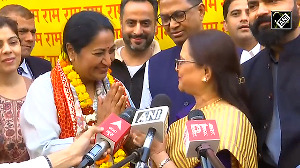"Use actions words."
"Wherever possible, highlight achievements."
"Include only what's relevant; stay concise"
Read on for more tips on how you can draft an impressive, foolproof CV.
 A CV is an important tool to make the first positive impression on a potential recruiter.
A CV is an important tool to make the first positive impression on a potential recruiter.
It contains only a summary of the job seeker's employment history, qualifications, education, and some personal information.
The challenge is not only as to what to include (since the content is going to be the same for everyone) but also how to present whatever one includes.
Your CV is the first step in establishing a personal branding mix to position oneself suitably for an opportunity.
The mix should be presented in such a way that while the overall items in the CV might be the same as for other candidates, the presentation makes a particular candidate position oneself uniquely.
What to include in a CV
Include basic information like name, phone number, e-mail clearly at the top of the CV.
Address may be included either at the beginning or the end in one or two lines.
Mention the following:
- Details of education -- Name of course / degree, institution, year of graduation and performance (percentage of marks obtained) in a clear tabular format.
- Details of work experience, internships or non-academic projects
- Details of awards and achievements -- try not to list trivial achievements (For example, you winning a singing competition in class 1 is not significant to the employer)
- Details of positions of responsibility held.
- Details of hobbies and interests. The interviewer might ask you how you're pursuing your hobby in the personal interview round. So, be watchful of what you include in here.
How to present a CV
Highlight what's important
Highlight unique selling points in each item included except in the basic info and the educational qualifications.
Highlight key words and numbers.
For example:
- Received certificates of merit from Modern School in 2002, 2005 for securing above 85 per cent in class 10th and 12th boards.
- Represented India at the international summit AYLS 07 organised by the Hwa- Chong Institute, Singapore.
Focus on highlighting achievements in whatever you include.
Use actions words
It is not only what you have done, but also what you have achieved in it is important.
Add relevant statistics
Include numbers (of people managed, events co-ordinated, scores, percentiles, etc) wherever possible to highlight achievements and put them in context.
What to avoid
- Include only what is relevant to your application.
- Do not write anything that you cannot subsequently defend or talk about in detail in the interview at the subsequent stages. That can only cause harm later. It is important to remember that the CV is just the first step.
- Grammatical and formatting errors are a big turn-off.
- Stay concise -- your CV should not more than one to two pages.
The author Abhishek Kumar is Assistant Professor, School of Management and Labour Studies, Tata Institute of Social Sciences
Photo: Flazingo Photos/Creative Commons











 © 2025
© 2025